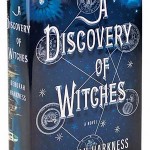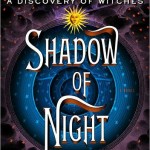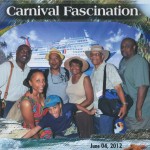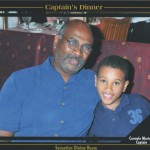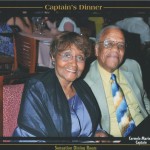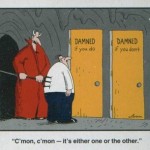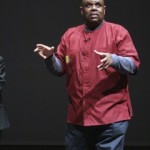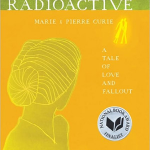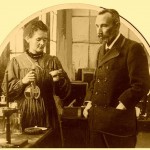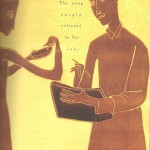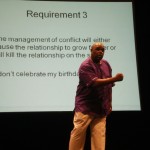At the end of the Spring-2012 semester, as graduation approached, I started to get thank you notes and cards.Â
 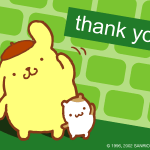      I really don’t think these are necessary, but students give them to me no matter what I think. May, 2012 the notes and cards began to come to me. But this year was a little different. This year, many of the notes gave a summary of what the student felt was so important in my teaching that they would never forget. A number of students summarized what they thought the important lessons were from my teaching.
     I really don’t think these are necessary, but students give them to me no matter what I think. May, 2012 the notes and cards began to come to me. But this year was a little different. This year, many of the notes gave a summary of what the student felt was so important in my teaching that they would never forget. A number of students summarized what they thought the important lessons were from my teaching.
    For me it was interesting to read these summaries of the basic lessons students got from my introduction to social psychology-interpersonal relationships class. Since the course is really a course on what it takes to build and maintain healthy interpersonal relationships, what my students said they learned had to do with that.
 P.R., a male wrote:
    “During the last semester of my senior year I expected to be burnt out and want to leave campus by 4:30pm after three hours of class, but I find myself excited and ready for your class every Tuesday and Thursday at that time. Everybody has internal struggles and questions about who they are and their role in the social world. Those questions cause insecurity in students that can stick with them the rest of their life and affect them greatly. You help us answer the one question; “I’ve had so many relationships fall apart in my life; how do I maintain a healthy, positive relationship?â€Â It’s easy; be honest (to yourself and others), take your time, go slowly, don’t rush things, and listen to other people. Thank you so much. I plan to take this knowledge with me forever.â€
   One student was insistent that she had something to give me. Whatever it was, she was unwilling to put it in my mailbox. When we were finally able to meet this summer, she gave me a thank-you card. She thanked me in person. After she left my office, I opened the card and found these words. She wrote:
 Dr. Nacoste,
    Where do I even begin? I took Psy 311 (your course) in Spring 2010- best class ever. I learned so much:
 1.     People do not just spring into existence just because I get interested.
2.     Long distance relationships are always at risk of failing.
3.     You have to work through interpersonal conflict if you want the relationship to work.
4.     Don’t take people for granted because anyone can ‘…walk the hell away.’
    I want to thank you for everything. Sincerely, G.M.
   Even for me, this particular semester, the classroom experience had been powerful. Through the questions they asked, the way they asked their questions, I could feel my students digging into the lessons; really learning, really changing. I was convinced of that by what happened after the final exam.Â
    By email, a young woman asked for an appointment before she left for the summer. We set it up and she came to my office, right on time. When she came in I recognized her from the classroom. She sat down and said,
    “I want to thank you. I have so much to say that I put it in a letter,†she said.
    “A letter, really?†I said. I expected her to hand it to me.
   “Yes… and I’d like to read it to you.â€
    “Oh… well, please go ahead.†I leaned back into my office chair.
    She unfolded what looked like two sheets of paper. She started, “Dr. Nacoste…â€
    At that beginning she burst into tears. I searched in my desk drawer and pulled out the packet of tissues I have learned to keep around. I handed her the packet.
    “That’s why I wrote it all down, because I knew I would be emotional.â€
    “I see,†I said and waited.
    “Dr. Nacoste,†she began again.
    …I have to admit your class surprised me. I thought I knew what I was getting into because I had so many friends who had taken your class and could not stop talking about how wonderful it was. I knew that you were a highly respected teacher. I knew I would love the class, but I didn’t expect to take away so much from it.
    There were so many days where you would say something and it would just hit me. I wrote about one of those days in my (one new thought) paper. I had been in a three-year relationship that was not working. I was miserable, but I stayed. Thanks to your class I left. I walked the hell away. I realized that I can still reevaluate my relationship [with my own standards], much like my boyfriend had when he cheated on me, except I could handle things a little bit differently. I could just leave… so I did.
    I was angry for a long time. I was angry that the person who was supposed to love me had cheated on me. I was angry that this wasn’t the first time this had happened to me. I was mad that my dad told me from the day I turned sixteen that every man would cheat on me… and then they did.
    So this brings me back to what I took away from your class. What surprised me most?
    Forgiveness and hope.
    I figured out that most of my misery was coming from the fact that I was mad all of the time.
    Over the course of your class I learned what might have motivated people to act the way they did and it was not their ‘selfish, mean, inconsiderate ways.’ You taught us, ‘everyone is fighting a great battle.’ Just as I explain my own behavior in situational terms, so does everyone else. Everyone has something going on. Many times we do not mean to hurt anyone, but we do.
     I realized that my ex probably wasn’t lying when he said, ‘I never meant to hurt you.’ There were times that I hurt him without meaning to and I see that now. The pain from this failing relationship was not only affecting me.Â
    After talking to my father about how much he had hurt me by telling me every man would cheat on me, he told me he was trying to protect me from getting hurt the way he had when he suspected his ex-wife was cheating on him. I never knew that.
    I will probably never speak to my ex again, but I forgive him. I cannot hate a person for having natural incompatibilities with me. We both made mistakes, but we both deserve to be happy. I also forgave myself for the mistakes I had made. I have humps on my back, but who doesn’t. We’re human.
    I also hope that one day I will be in a healthy relationship with a person I trust. I had given up on that dream for a long time, but in one of your lectures you said, ‘…we will all be in relationships with people we should not have trusted but that does not mean we should give up. When you give up you cripple yourself.’ This quote sticks with me every day now.
    Thank you so much for making me open my eyes.
    I would also like to thank you for being an amazing teacher. I have never seen a teacher who could present anything the way you can. The way you relate the material to real life, incorporate music and poetry into lectures, and give the subject emotion is absolutely incredible. Thank you for taking the time and effort to make your class the way it is.
    You said on the first day if we wanted to keep our ‘…naïve, romantic ideas about love,’ that we should drop your class. I’m glad you took those ideas away from me because now I realize that when you look at relationships realistically, they are HARD. It takes a lot to make one work. There are so many things influencing the dyad that it’s amazing to me that any relationship can last for so long. That’s also what makes it more magical and incredible than any fairytale.
    Thank you for making me see this. Thank you for everything.
    W.C.
        Throughout her reading of her incredible letter to me, every now and then W.C. had wiped away some tears. When W.C. finished reading her letter, we both sat quiet for moment.Â
    “I am without words,†I said.
    “Thank you for letting me read this to you. This was very important to me. Thank you for everything.â€
    We both stood. I opened my arms and she came to me like a daughter. We released each other and said our goodbyes.
   Teaching about relationships is a hell of thing.
    With that, Summer 2012 was starting for me.

